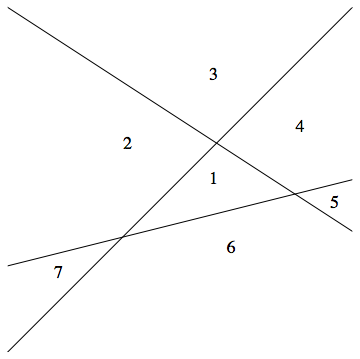The determination of
\(C_k\) is a standard kind of problem in combinatorics. One solution is by way of a recurrence relation. In fact, many problems in combinatorics are most easily solved by first searching for a recurrence relation and then solving it. The following observation will suggest the recurrence relation that we need to determine
\(C_k\text{.}\) If
\(k \geq 2\text{,}\) then every string of 0’s and 1’s with length
\(k\) and no two consecutive 0’s is either
\(1s_{k-1}\) or
\(01s_{k-2}\text{,}\) where
\(s_{k-1}\) and
\(s_{k-2}\) are strings with no two consecutive 0’s of length
\(k - 1\) and
\(k - 2\) respectively. From this observation we can see that
\(C_k= C_{k-2}+C_{k-1}\) for
\(k\geq 2\text{.}\) The terms
\(C_0=
1\) and
\(C_1 = 2\) are easy to determine by enumeration. Now, by iteration, any
\(C_k\) can be easily determined. For example,
\(C_5 = 21\) can be computed with five additions. A closed form expression for
\(C_k\) would be an improvement. Note that the recurrence relation for
\(C_k\) is identical to the one for
The Fibonacci Sequence. Only the basis is different.


